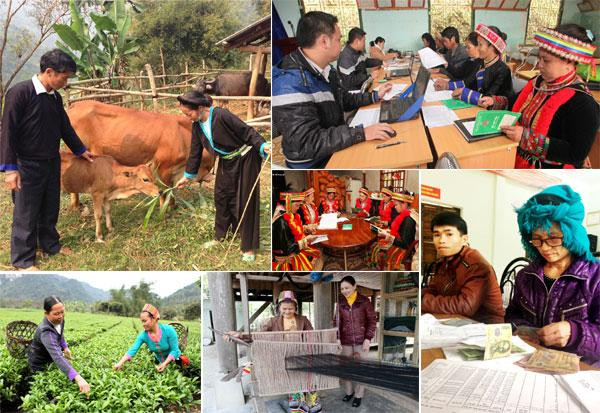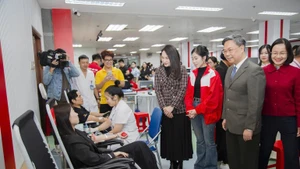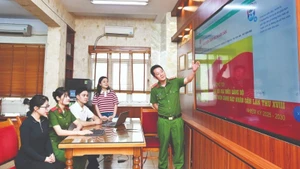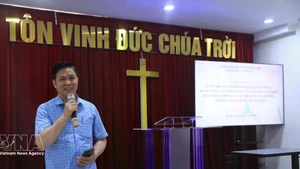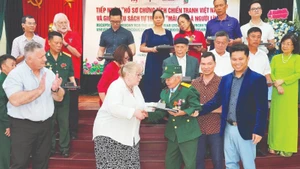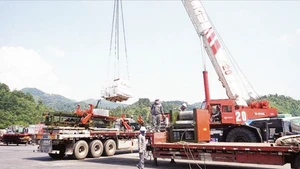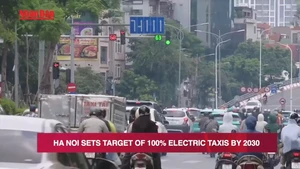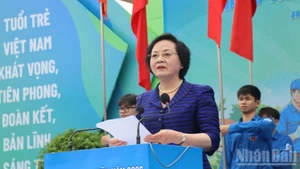In Dien Bien province, a programme entitled ‘House of Compassion’ aims to mobilise more than 35 billion VND by 2024 to construct houses worth around 50 million VND each for nearly 6,700 poor households in the districts of Tua Chua, Muong Nhe, Muong Cha, Tuan Giao, Muong Ang, Nam Po, Muong Lay town, Dien Bien Phu city.
Chairman of Dien Bien Provincial People's Committee Le Thanh Do said the local Party Committee has requested authorities at district and communal levels cut their regular annual spending by 5% and 10%, respectively, to fund the programme.
In addition, the province is also calling on people, communities and businesses from both inside and outside the locality to make donations to the Provincial Fund for the Poor, and the construction of social houses for the poor in order to achieve the goal of 100 % of poor households having a house before the 70th anniversary of the Dien Bien Phu Victory (May 7, 1954 - May 7, 2024).
In Quang Tri province, solutions have been adopted to help the Van Kieu ethnic community in the mountainous district of Huong Hoa foster the application of scientific and technical advances into production and grow new varieties with high quality and productivity.
Pun Coffee Co., Ltd in Huong Phung commune has launched a 50-hectare coffee growing area, gathering the participation of more than 90 Van Kieu households in Huong Phung and Huong Son communes.
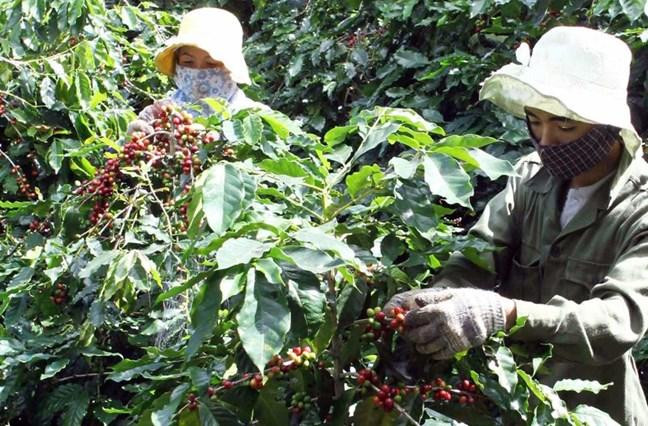 |
| Cultivating coffee in Huong Hoa district, Quang Tri province. |
Ho Thi Khan, a project participant in Xa Ry hamlet, Huong Phung commune, said ther family had cultivated coffee across 0.5 hectares since 1999. However, most of the production process depends on the weather, thus productivity has been unstable.
In 2019, her family received training from the Pun Coffee company on the proper ways to grow, look after and harvest coffee, thus productivity has been significantly improved. Since then, the coffee cultivation area has increased by 1.2 hectares, with an annual productivity of 8 tonnes.
Localities in the Northwest, the Central Highlands, the Southwest and the Central Coast, where the majority of the population are ethnic minority groups, have launched many programmes and projects while mobilising all available resources for poverty reduction and the socio-economic development of local minority-inhabited areas.
Accordingly, the campaign entitled ‘Changing the mind-set of ethnic minorities, helping them escape from poverty sustainably", launched in Kon Tum province in 2021, has brought about a fresh appearance to every village in the locality.
Under the campaign, more than 70% of poor households in Dak Ha district have received instructions on applying high technology into production, bringing high economic efficiency.
The national target programme on socio-economic development in ethnic minority-inhabited and mountainous areas in the 2021-2030 period is designed to create a breakthrough in the promotion of the comprehensive development of remote and disadvantaged areas, where people still suffer from poverty.
The overall objective is to exploit the potential of ethnic minority and mountainous areas, promote economic development, ensure social security, and put in place rapid and sustainable poverty reduction.
The programme sets out an ambitious goal for the average income of ethnic minorities to double in 2025 compared to 2020. Meanwhile, 99 and 90 percent of the group will get access to electricity from the national grid and hygiene water, respectively.
